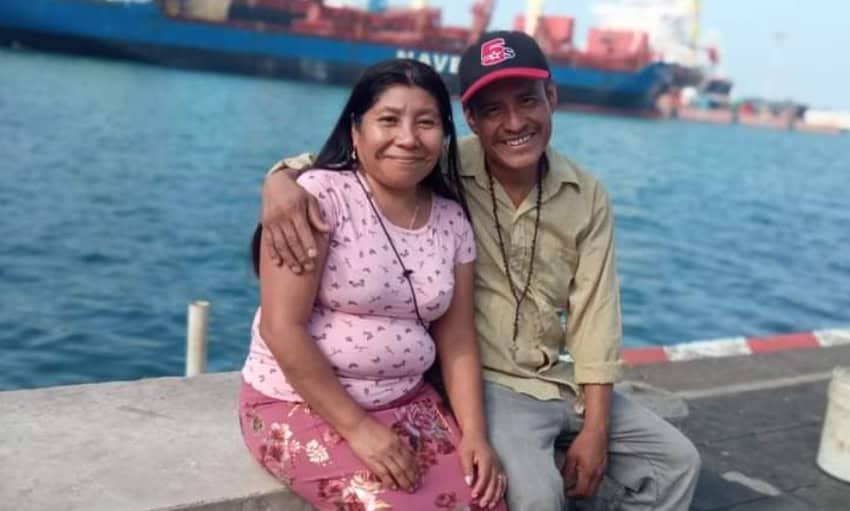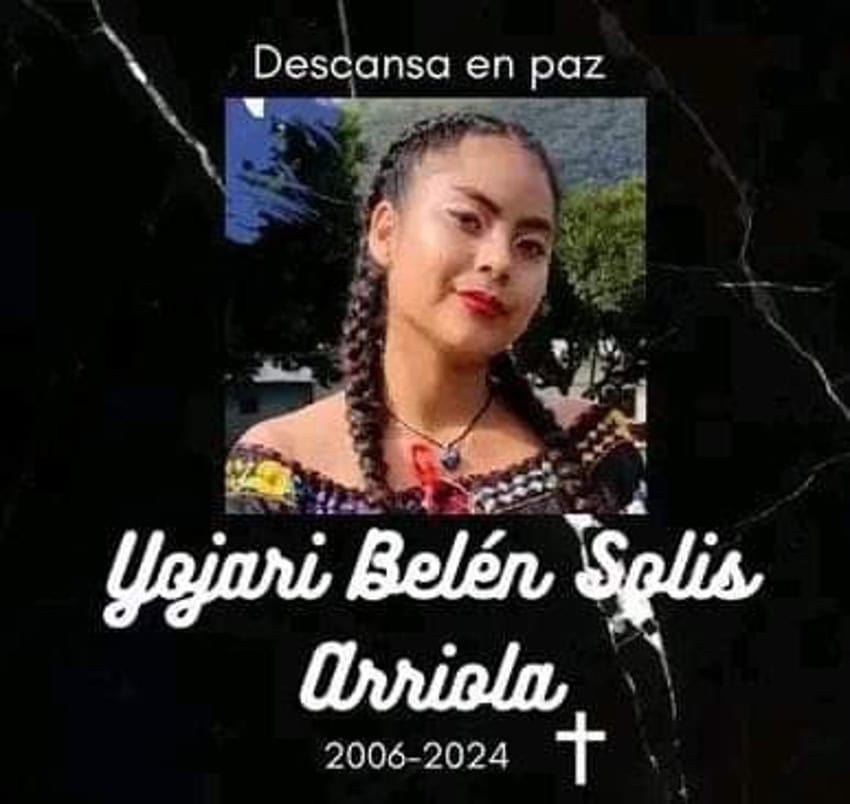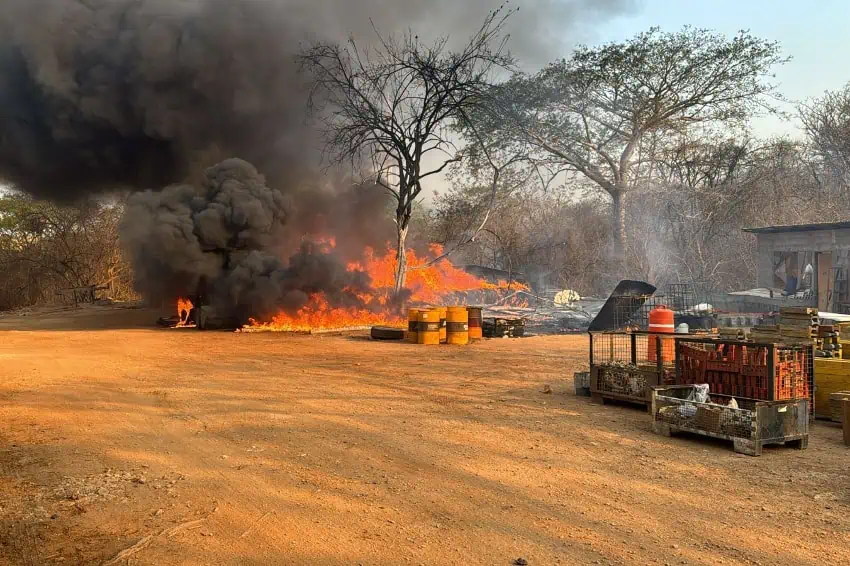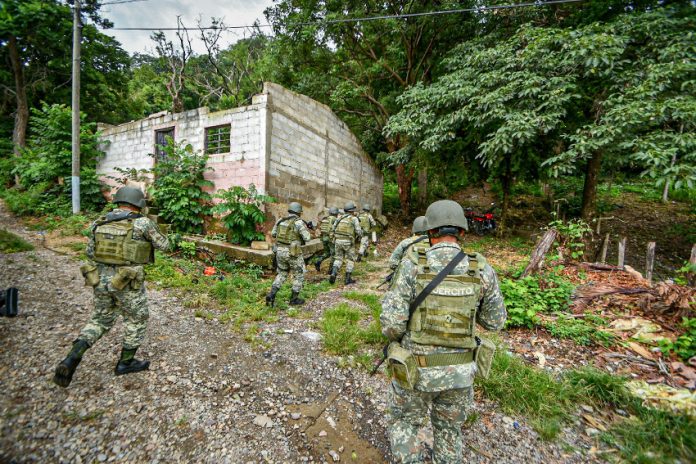Another episode of shocking violence occurred this week in the southern state of Chiapas.
Eleven people — reported to be members of the same extended family — were murdered in the municipality of Chicomuselo, located near the state’s border with Guatemala.
The victims were reportedly gunned down in a single home where they were all living. They didn’t appear to have any involvement in organized crime. A motive for the massacre has not been officially established.
The State Attorney General’s Office (FGE) said in a statement on Tuesday that it had begun “investigations against the person or persons responsible for the homicide of 11 people in recent hours in the community of [Nueva] Morelia, municipality of Chicomuselo.”
It said that a group of officials led by the FGE recovered the bodies and that authorities were carrying out patrols in the area to locate the perpetrators and “guarantee peace” while investigations take place.
There are conflicting reports about when the massacre occurred, but news outlets that spoke to residents said it happened on Sunday night.

Chicomuselo is part of a region of Chiapas where the Sinaloa Cartel and the Jalisco New Generation Cartel (CJNG) and their local affiliates have been involved in a turf war for some time. They are fighting to control routes along which narcotics, weapons and migrants are transported north after entering the country from Guatemala.
The intensity of the dispute has increased in recent times, resulting in numerous confrontations with multiple casualties. Earlier this year, Chicomuselo residents reported that one clash between the Sinaloa Cartel and the CJNG left at least 20 people dead, although state officials subsequently said there was “no record that proves” it.
The latest massacre
Isaín Mandujano, a journalist in Chiapas, said on the X social media platform on Tuesday that the 11 victims were not killed in a confrontation, but rather “a massacre perpetrated by an organized crime group.”
“The 11 dead people were not sicarios,” he added, using a word that means hitmen or hired assassins.
“They were civilians riddled with bullets in their own homes. The images say everything,” Mandujano said in a post that includes extremely graphic photos and video footage.
The Reforma newspaper reported Wednesday that “Ignacio López and at least six members of his family” were among the 11 people killed on Sunday night. Aristegui Noticias said that all 11 victims were members of that family, and that gunmen killed them at the same house before setting the residence on fire.
Reforma said that armed men arrived at “various houses in the municipality of Chicomuselo” on Sunday, including that of “Nacho” López, whom it described as a 52-year-old “Catholic catechist,” a religious educator akin to a Sunday School teacher.
The newspaper said that his wife (also described as a “catechist”), father, sister, sister-in-law and 18-year-old niece were killed. Reform identified the seventh victim of the family as the aunt of López’s sister-in-law. Aristegui Noticias identified additional family members.
Reforma reported that locals said that the victims had refused to work for criminal groups that operate in the area. It also said that López and his family were accused by one drug cartel of working for its rival.

A Nueva Morelia resident denied that was the case.
“We prepared a letter to disseminate among the population to say that neither [Nacho López] nor his family supported any criminal group,” he told Reforma.
A person close to the family told Aristegui Noticias that the victims were killed for “always resisting, for not being part of the ranks of either of the two [rival] groups.”
That person also said that López’s family, like many other people in Nueva Morelia, opposed the operation of a local mine, where one criminal group reportedly engaged in illegal mining activity.
The president weighs in
President Andrés Manuel López Obrador was asked about the murder of the 11 people in Chicomuselo at his Thursday morning press conference.
“That area has insecurity problems,” noted the president, a fact that has become increasingly obvious over the past year or so.

“… The National Guard is there, but there have been confrontations and regrettably losses of human lives,” López Obrador said.
He said that “the people affected” by the violence “maintain that they don’t participate in any [criminal] group.”
“However, there are those who think the opposite,” López Obrador said, apparently indicating that those killed on Sunday may have had a connection to either the Sinaloa Cartel or the CJNG.
“All the investigations are being done,” he said.
López Obrador also said that elections will be able to be held in the border region of Chiapas on June 2, despite the ongoing violence that has caused many residents to flee.
“There is this tendency to say, ‘we can’t [hold the elections], violence rules,'” AMLO said before likening such comments to a United States government claim about cartels’ alleged control of certain parts of Mexico.
“Not long ago, the commander of the United States Northern Command declared that 70% of Mexico’s territory was dominated by drug trafficking,” he said, although General Glen D. VanHerck actually remarked in 2021 that transnational criminal organizations operate in “ungoverned areas” that account for “30% to 35% of Mexico.”
“We had to tell them that this is not the case. And constantly we have to be informing them,” said López Obrador, who declared last year that Mexico is safer than the United States and that “there is no problem with traveling around Mexico safely.”
A federal official, National Institute of Anthropology and History (INAH) director Diego Prieto, disagreed with that assessment earlier this year, advising against visiting certain archaeological sites in Chiapas due to insecurity.
“At INAH we suggest that you don’t go [to the border region of Chiapas] so you don’t have an unfortunate experience,” Prieto said.
With reports from Proceso, Reforma, Aristegui Noticias, El País and El Universal
